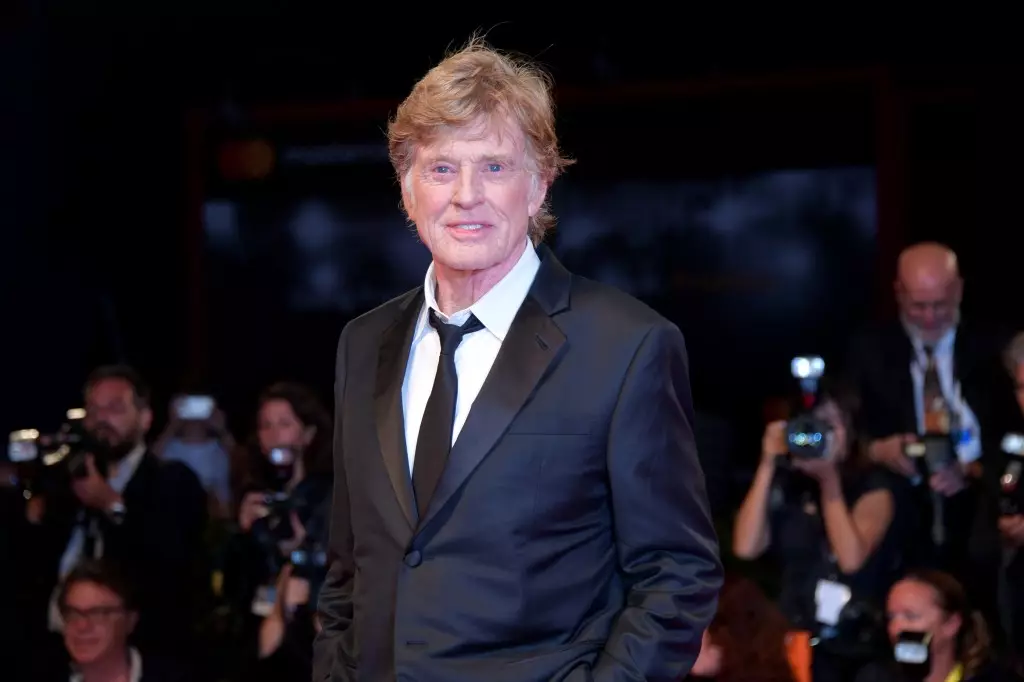Robert Redford’s passing marks the end of an era, but it also prompts a deeper reflection on the complex figure he embodied. Often celebrated as a quintessential Hollywood star—whose charming presence in films like *The Way We Were* and *Butch Cassidy and the Sundance Kid* captivated audiences—Redford was also a relentless critic of the very industry that made him famous. His life was a tapestry of contradictions: a man who embraced stardom yet harbored deep distrust for Hollywood studios and the superficial glamour they perpetuated. Such dualities reveal a fiercely independent spirit, a rebel who refused to be confined by Hollywood’s expectations and corporate machinations.
Redford’s love for cinema was genuine; he poured passion into his craft. Yet, he frequently found himself disillusioned with the machinery behind the scenes. His skepticism of studio executives and his wariness of Los Angeles’s insular culture reflected a desire for authenticity that Hollywood routinely compromised. This internal conflict—between his admiration for filmmaking and his disdain for the industry’s politics—shaped much of his career and legacy. Moreover, his off-screen life demonstrated a commitment to causes beyond entertainment, championing environmental conservation and Native American rights, ideals which often went underplayed amidst his glamorous public persona.
A Career Navigating Uncertainty and Authenticity
Redford’s early career was marked by experimentation and indecisiveness. While he initially sought Broadway stardom in Neil Simon’s *Barefoot in the Park*, he remained cautious about his film choices. His early projects, such as *War Hunt* and *Tall Story*, while paying the bills, failed to ignite his passion or secure his star power. He took risks – including a Western called *Blue* — only to withdraw at the last minute, revealing his indecisiveness—a trait that would often define his Hollywood journey.
What set Redford apart was not an instinctual desire for fame but a quest for meaningful work. His roles in *Little Fauss and Big Halsey* and *Downhill Racer* showcased a talent for embodying complex, layered characters. Yet, his reluctance to fully commit sometimes created tension. He was at the mercy of his own ambivalence, often arriving late or skipping meetings, which frustrated agents and filmmakers alike. Despite these hurdles, his friendship with Paul Newman and his eventual breakthrough with *Butch Cassidy* cemented his reputation as a talented, if sometimes unpredictable, actor.
His career was rife with near-misses and creative battles. The *Great Gatsby* project, for example, was a source of frustration due to disagreements over casting and scripts. Similarly, *All the President’s Men* faced public disputes with writer William Goldman, even as the film became critically acclaimed. Through all this, Redford’s resilience persisted, driven not by a desire for unchallenged success but by an abiding love for storytelling and authenticity.
Sundance and the Rebirth of Indie Cinema
Perhaps Redford’s most enduring contribution was his stewardship of the Sundance Institute. Recognizing Hollywood’s obsession with blockbuster formulas, he dedicated himself to nurturing independent filmmakers and fostering creative expression outside the mainstream system. Sundance became a symbol of artistic freedom and innovation—an arena where raw, uncompromised voices could flourish. Redford’s involvement was driven by a conviction that cinema should be a vehicle for truth and insight, not just entertainment.
His own directorial effort, *Ordinary People*, exemplified this ethos. It was a film rooted in honesty and emotional depth, standing as a beacon of hope for aspiring auteurs tired of the industry’s superficial pursuits. Redford’s love for filmmaking was genuine but tempered by a clear disdain for the pre-production grind—an honest confession that he loved the art but not always the process. This duality made him both a sincere artist and an outsider, someone who saw Hollywood as a necessary evil rather than a calling.
In the end, Redford’s legacy is defined less by his box office hits than by his impact on the industry’s soul. He was a symbol of rebel spirit that refused to be tamed by the machinery of fame, someone who used his influence to champion independent voices and meaningful storytelling. His life reminds us that true artistic integrity often comes with internal struggles and contradictions, yet those very tensions can fuel a legacy that endures far beyond the silver screen.
